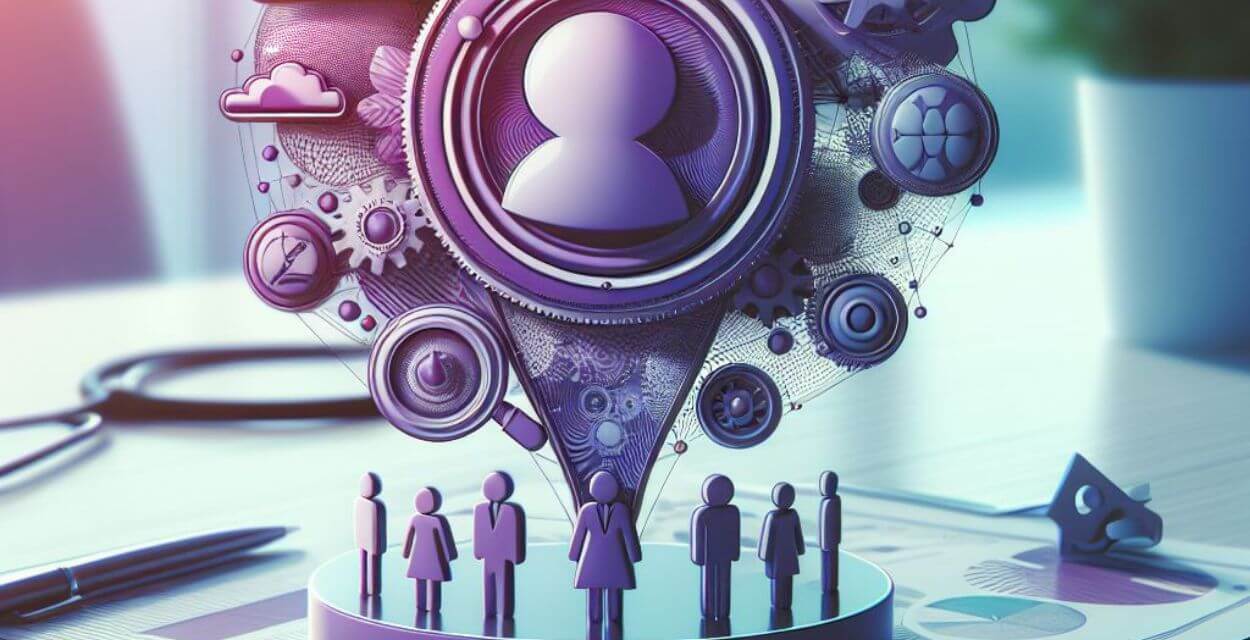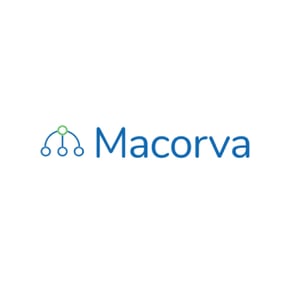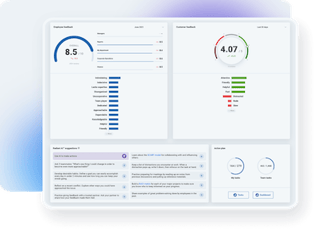
The Role of AI in Talent Identification
For 95% of business leaders, identifying and retaining talented employees was among their top three pain points in 2023. As the competition for skilled talent intensifies, leading organizations look for technologies that increase their chances of finding skilled workers who will remain committed to their company’s mission. Artificial intelligence (AI) presents a revolutionary new way to maximize talent potential.
AI talent identification software can leverage predictive analytics in hiring the most skilled workers and ensuring they align with your company’s goals and objectives. By using AI in talent acquisition, businesses can solve the bottlenecks present in conventional recruitment workflows to find unique talent with the exact skills they hope to retain and cultivate. Continue reading to learn more about AI data analysis in recruitment processes, which is changing everything businesses think they know about the war for talent in 2024.
The Evolution of Talent Identification and Acquisition
Traditional talent identification starts with formal talent reviews. HR leaders sift through the resumes of potential candidates using trial and error to determine whether they match the company’s objectives. The conventional metrics for talent acquisition include degrees, work experience, proven skills, and employer reviews.
Using this traditional approach, business leaders often encounter recruitment bottlenecks, including:
- Time commitment: The more detailed the hiring process, the longer it takes. Though extended recruitment methods can discover skilled talent, according to Harvard Business Review, 62% of workers lose interest in a company that takes too long to hire them.
- Candidate stress: In increasingly competitive markets, potential talent is less likely to endure a stressful hiring “experience”.
- Inadequate budget: A lengthy talent identification process costs money, leading many companies to downsize their recruitment procedure instead of refining it.
- Unqualified candidates: With emerging technologies changing industry expectations every day, many businesses struggle to identify candidates who retain the skillsets they value.
- Bad matches: Using traditional recruitment methods, hiring managers often struggle to find skilled talent that matches a business’s objectives for its workplace culture. Even an individual with the right skillset could be wrong for the company.
Simply downsizing the recruitment process won't solve the problem of overwhelming candidate pools, which strain HR departments and hinder their ability to identify the best talent. Fortunately, advanced talent identification software is now accessible even to small businesses, allowing them to leverage AI to overcome these bottlenecks, save time, and focus resources on more strategic HR initiatives.

How AI is Transforming Talent Identification
Many smaller companies believe that investing in AI talent identification processes belongs to their larger competition. However, studies show that small businesses comprise the highest investment in AI recruitment, hiring 47% of available AI talent. The results of this investment have been overwhelmingly positive – 86% of businesses that use AI for performance development reported a positive impact.
However, hiring AI engineers and scientists is not the only way for small businesses to take advantage of AI technologies in their talent identification workflows. Using AI-enabled data analysis via systems like Macorva, organizations can analyze vast amounts of data from numerous sources to avoid recruitment bottlenecks without increasing their labor costs. Examples of employee data sources include:
- Resumes
- Social media profiles
- Past performance reviews
- Employee feedback surveys
- Learning outcomes
- Retention rates
- Engagement metrics
- Exit interviews
In today’s digital spaces, employees enter new jobs with a large digital footprint that demonstrates their personal and professional aptitudes. While a human HR manager would take hours or days to review all this information, talent identification software can do it in seconds to identify potential candidates based on the performance and personality traits that the business prefers.
In addition to identifying patterns from historical data, AI recruitment protocols can predict the trajectory of an employee in the future. For example, it can use past behavior to identify how likely the employee will be to turnover and how they will move within the industry.
This identifies the greatest advantage of using AI data analysis in recruitment: the ability to match the employee to the company’s unique needs. While conventional talent identification methods are limited to identifying skills, using AI in HR allows businesses to perform skill gap analysis to examine how each candidate will fit into their current workflow. Even after the candidate has been hired, AI talent management protocols continue collecting data to help managers deliver optimal training programs to workers and bridge their company’s unique skill gaps.
Applications of AI in Talent Acquisition
Despite some business leaders fearing that overly automating the hiring process could lead to inaccurate talent picks, AI-enabled software improves the talent acquisition process in numerous ways:
- Resume Screening: AI can quickly analyze and filter resumes based on specific criteria, identifying the most qualified candidates.
- Candidate Sourcing: AI tools can search various platforms and databases to find potential candidates, including passive job seekers.
- Interview Scheduling: AI can automate the scheduling of interviews, coordinating between candidates and interviewers to find suitable times.
- Skill Assessment: AI can evaluate candidates' skills through various assessments, including video interviews and online tests.
- Onboarding: AI can streamline the onboarding process by automating administrative tasks and providing new hires with necessary information and training materials.
While traditional talent acquisition relies on intuition and trial and error, AI recruitment tools apply scientific modeling techniques to modernize a business’s acquisition strategies with a unique data-driven approach. With massive data sets, these tools can analyze the profiles of potential candidates to calculate their predicted success metrics in their new positions.
With 76% of HR leaders planning to adopt AI solutions in the coming 12-24 months, it's clear that businesses are recognizing the immense potential of AI in optimizing recruitment processes. Since each company has unique workplace culture objectives, AI's ability to analyze vast amounts of data and pinpoint candidates aligned with those objectives is invaluable. This growing trend demonstrates the increasing confidence in AI's data analysis capabilities to enhance recruitment outcomes.

Benefits of Using AI in Talent Identification
In addition to more accurately sourcing talent, AI talent identification software speeds up recruitment by automating resume screening and candidate shortlisting to help HR managers focus only on the most promising candidates. This reduces the budget needed for talent scouting while also increasing its effectiveness.
Another reason increasing numbers of organizations are adding predictive analytics to their talent identification process is to mitigate managerial bias. Bias based on gender, age, race, background, or skills reflects poorly on the company’s reputation, turns away potential talent, and potentially causes compliance issues. AI can achieve a business’s goals for diversity and exclusivity without relying on biased assessments.
Using AI in talent identification also benefits the candidate experience, making potential talent more likely to connect with a company’s objectives. AI-driven recruitment includes personalized communication for each candidate that delivers timely updates on the hiring process to keep them in the loop. With 45% of candidates ghosting their prospective employer after the interview and 1 in 5 doing so after getting an offer, timely communication is essential for organizations that want a good return on investment for their talent search. AI performance solutions like Macorva centralize data analysis in the recruiting process to handle large amounts of data and keep prospective employees informed without increasing the HR workload.
Challenges and Ethical Considerations
While AI solutions solve challenges, they also create new ethical considerations. For example, in the process of resolving managerial bias, AI models can acquire their own form of biases if biased decision-making continues to be reinforced by positive outcomes.
Consider this real-world example of biases forming in Amazon’s AI recruiting algorithm. The AI learned through training and reinforcement to prioritize the words “executed” and “captured” in resumes. It knew that men are more likely to use those words in their resumes, but without a human’s intuition, it didn’t realize that this formed an unproductive bias in its selection process. The result was a hiring process that unfairly favored male applicants even though no conscious bias was ever programmed into the system.
To avoid such biases and improve your business’s AI governance, make sure that humans stay in the loop to spot unintentional trends. Train HR leaders in reinforced learning techniques that teach AI solutions how to learn tasks within the framework of a company’s objectives. Relying solely on the system’s numerical judgment can lead to uneven hiring practices that create more problems than they solve. Ultimately, AI is a tool, and your HR leaders need to understand that if they turn in an AI-generated performance review filled with errors, they will be just as accountable as if they wrote it.
Real-World Applications and Case Studies
Before implementing AI solutions in your business’s recruitment process, consider these case studies:
Case Study 1: IBM
As a large firm, IBM’s primary pain points in its recruitment process were its overabundance of candidates and outdated candidate experience. Using an AI-powered recruitment system, IBM’s HR department could easily sift through the thousands of applications and focus their analysis on the most suitable candidates. The program was capable of assessing cover letters, CVs, and skills experience to match the applicant’s aptitudes with the company’s current objective.
As a result of AI implementation, IBM reduced their screening time per candidate and eliminated managerial biases in their recruitment process. They observed an improvement in the quality of their hires and a greater ability to meet DEI standards.
Case Study 2: Hilton
Hilton faced recruitment challenges unique to its industry, such as a high standard for the candidate’s hiring experience. Hilton deployed AI chatbots as part of their employee interview platform to collect basic candidate information and answer questions. Additionally, the AI could analyze prospective employees’ video interviews, including both verbal and body language, to assess whether the candidate was suitable for roles involving high standards of customer interaction.
As a result of AI implementation, Hilton saw improvements in their recruitment efficiency and effectiveness. The system helped them meet the challenge of finding candidates with not only the right skills but also the correct disposition for hospitality management. Prospective candidates also reported enjoying the recruitment experience more due to its modern functionality. This allowed Hilton to reduce candidate hesitancy and lower turnover rates in newly recruited talent by establishing a positive brand image through recruitment.
Future Trends in AI and Talent Identification
Looking forward, businesses should prepare to integrate AI solutions into broader aspects of talent management. Imagine AI generating personalized career paths for employees or even acting as a virtual mentor, offering guidance and support. These innovative applications demonstrate AI's expanding role in shaping the future of work.

One example of this is Macorva’s centralized platform, which seamlessly integrates performance management and data analysis, empowering employees to stay engaged and productive through virtual collaboration tools.tools These tools are embedded with advanced AI algorithms that deliver fair, unbiased career advice based on the employee’s actual history and experience. This means that before employees are even hired, a solution like Macorva can generate job descriptions that are more relevant and attractive to your target candidates based on their experience. This relevance allows your HR team to find employees whose skills and goals relate more closely to your company’s objectives, which is a proven way to increase engagement.
HR managers can also use Macorva to make more effective talent-related decisions, such as whether skill gaps should be addressed internally with personalized training programs or externally by targeting new talent. As the relationship between HR and AI technology evolves, human managers must recognize that AI is a tool, not an automatic solution for every recruitment pain point. To effectively deploy AI data analysis in recruitment, business leaders must take steps to make sure the contextual insights generated by their tools remain free of human biases. The businesses that deploy trending technologies successfully are those that recognize the importance of collaboration between HR leadership, technology solutions, and prospective talent.
Conclusion
AI solutions bridge the gap between modern HR departments and rising talent by collecting and analyzing historical data to improve the recruitment process. Based on massive amounts of data, including personal accounts, performance reviews, and skills assessments, AI-enabled recruitment software can eliminate managerial biases, improve the candidate’s recruitment experience, and identify the most promising candidates for further review.
This allows modern businesses to remain competitive in the ongoing war for talent by providing a more transparent recruiting process that is less likely to result in candidate turnover. HR staff can use AI insights to make informed talent management decisions without the labor and monetary costs normally associated with an in-depth talent identification process.
The future of talent identification, acquisition, and retention will rely on productive collaborations between human management and AI-driven recruitment systems. While AI offers near-limitless data analysis capabilities, human expertise remains essential to ensure fair and unbiased decision-making in the recruitment process. This powerful combination allows organizations to not only identify the right talent but also foster a more inclusive and equitable workplace.
Contact Macorva today to learn how our AI solutions can enhance candidate satisfaction and lower turnover rates in your business.
For more information on the latest advancements in AI for HR and how it can improve your team's performance, read these related articles:
- How to responsibly amplify workplace productivity with AI
- Should you use AI in employee performance reviews?
- 5 ways AI is revolutionizing performance management







